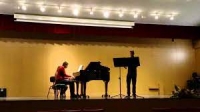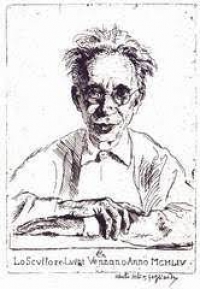Clarinet Sheet Music
 "I was just a punk kid, trying to get a sound out of a guitar that I couldn't get off the rack, so I built one myself ... I wanted a Gibson type of sound but with a Strat vibrato .. I went to town painting it and I put three pickups back in, but they don't work - only the rear one works" Eddie Van Halen - aka King Edward the Great
"I was just a punk kid, trying to get a sound out of a guitar that I couldn't get off the rack, so I built one myself ... I wanted a Gibson type of sound but with a Strat vibrato .. I went to town painting it and I put three pickups back in, but they don't work - only the rear one works" Eddie Van Halen - aka King Edward the Great
Traditional

Liana Alexandra
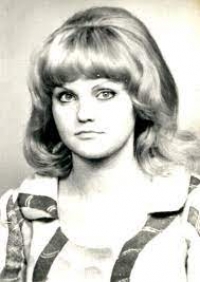
Liana Alexandra (born Liana Moraru; 27 May 1947 – 10 January 2011) was a Romanian composer, pianist and music educatorAlexandra was born in Bucharest, Romania. From 1965 to 1971, she studied at the Ciprian Porumbescu Conservatory (now the National University of Music Bucharest) under Tudor Ciortea and Tiberiu Olah and took composition courses in 1974, 1978, 1980 and 1984 in Darmstadt, Germany. She had a doctorate in musicology and taught composition, orchestration, and music analysis at the Conservatory from 1971 until her death in 2011. A prolific composer in the neoromantic style, Alexandra had over 100 of her works performed and published in Romania. According to musicologist Octavian Cosma, she was "in her element with orchestral and chamber music, employing repetitive and evolving techniques, with melodic lines which suggest lyricism and meditation" and an instrumentation that used "a palette of delicate, pastel colours." Alexandra married the Romanian cellist and composer Şerban Nichifor in 1978. They performed together as Duo Intermedia from 1990 and were co-directors of the Nuova Musica Consonante - Living Music Foundation Festival.
Gianfranco Gioia
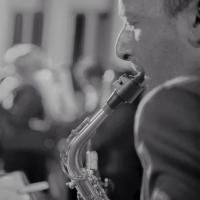
He was born in Palermo in 1971. He graduated in Clarinet at the Conservatory of Music "Vincenzo Bellini” of Palermo and in Saxophone at the Conservatory of Music "Arcangelo Corelli" of Messina. He also attended courses of Composition, Choral Music and Choirmaster.
Henri Rabaud
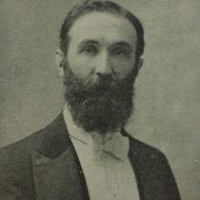
Henri Benjamin Rabaud (10 November 1873 – 11 September 1949) was a French conductor, composer and pedagogue, who held important posts in the French musical establishment and upheld mainly conservative trends in French music in the first half of the twentieth century.Rabaud came from a musical background. He was the son of a cellist Hippolyte Rabaud (1839–1900), professor of cello at the Paris Conservatoire, while his mother was a singer who almost created the role of Marguérite at the request of Charles Gounod. His maternal grandfather was a well-known flautist, while his great aunt was Julie Dorus-Gras.
Ryan Pendleton
Ryan Pendleton Compose, arrange and engineer original music for clients based on brief.
William Zeitler
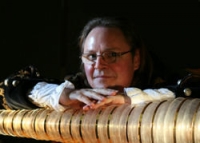
William Zeitler (born 1954 in St. Louis) is a performer on the armonica, or glass harmonica, an instrument invented by Benjamin Franklin. In 2013 he published The Glass Armonica: The Music and the Madness, a book about glass instruments and their history.Also a composer.
Henry Fillmore
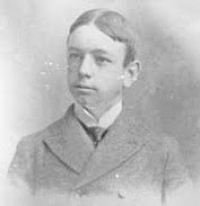
Henry Fillmore (December 3, 1881 – December 7, 1956) was an American musician, composer, publisher, and bandleader, best known for his many marches and screamers.In the 1920s Fillmore was back in Cincinnati conducting the Shriners Temple Band, which he turned into one of the best marching bands in the country.In 1938 Fillmore, after being advised by a physician that he had just a few months to live, retired to Miami, Florida. He went on, however, to prove the physician wrong. So Fillmore kept an active schedule rehearsing high school bands in Florida and composing marches. Henry Fillmore Band Hall, the rehearsal hall for many of the University of Miami's performing groups, acquired its name as a tribute to Fillmore's work in the band genre. His march "Orange Bowl" was written for Miami's Band of the Hour. Uncle Henry, as Fillmore was affectionately known to the members of the Band of the hour, also wrote the University of Miami's current official fight song – "Miami U How-De-Doo". His arrangement of "The Star-Spangled Banner" is the traditional arrangement performed by the Florida State University Marching Chiefs. His march "Men of Florida" was composed for the bands at the University of Florida. He was given an Honorary Doctorate of Music by the University of Miami in 1956 in recognition of his career. Fillmore lived out the rest of his days in South Florida.
Tan Dun
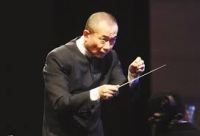
Tan Dun (simplified Chinese: 谭盾; traditional Chinese: 譚盾; pinyin: Tán Dùn, Mandarin pronunciation: ; born 18 August 1957) is a Chinese contemporary classical composer, pianist, viola d'amore player and conductor, most widely known for his scores for the movies Crouching Tiger, Hidden Dragon and Hero, as well as composing music for the medal ceremonies at the 2008 Beijing Olympics. His works often incorporate audiovisual elements; use instruments constructed from organic materials, such as paper, water, and stone; and are often inspired by traditional Chinese theatrical and ritual performance. In 2013, he was named a UNESCO Goodwill Ambassador. He has won numerous awards for his works, including an Academy Award, a Grammy Award and a BAFTA award.
Irving Berlin

Irving Berlin (May 11, 1888 – September 22, 1989) was a Russian-born American composer and lyricist, and one of the most prolific American songwriters in history. Berlin was one of the few Tin Pan Alley/Broadway songwriters who wrote both lyrics and music for his songs. Although he never learned to read music beyond a rudimentary level, with the help of various uncredited musical assistants or collaborators, he eventually composed over 3,000 songs, many of which (e.g. "God Bless America", "White Christmas", "Anything You Can Do", "There's No Business Like Show Business") left an indelible mark on music and culture worldwide. He composed seventeen film scores and twenty-one Broadway scores.
Michael W. Smith
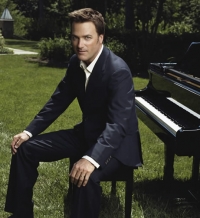
Michael W. Smith (born October 7, 1957) is a Grammy Award-winning American singer and songwriter. He is one of the best-selling and most influential artists in Contemporary Christian Music, and he has achieved considerable success in the mainstream music industry as well. Smith is a three-time Grammy Award winner, and he has earned 34 Dove Awards. Over the course of his 24-year career, he has sold more than 13 million albums and he has recorded 29 number-one hit songs, fourteen gold albums, and five platinum albums. Mr. Smith is an American Music Award recipient and he was named one of People magazine's most beautiful people.
domenico giannetta
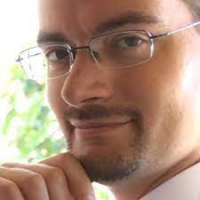
Domenico Giannetta (1974), Italian composer and musicologist. Giannetta's works have been performed in different countries (Italy, Germany, France, Russia, ...
Afonso Alves
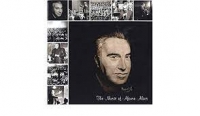
Banda Visconde de Salreu, musical direction by Afonso Alves. If you liked what you heard, subscribe to Afonso Alves' channel wherever you can.
Herbert L. Clarke
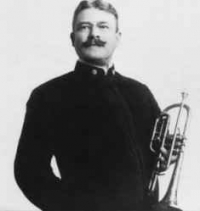
Herbert Lincoln Clarke (September 12, 1867 – January 30, 1945) was an American cornetist, feature soloist, bandmaster, and composer. He is considered the most prominent cornetist of his time.Clarke's legacy includes composing a portion of the standard repertoire for the instrument, many recordings, as well as a seminal school of playing which emphasized not only technical aptitude, but also increased warmth and lyricism of tone. He also produced several method books that are still used by brass students.
Toño Abreu
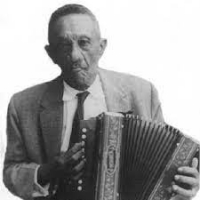
José Antonio Abreu Anselmi (May 7, 1939 – March 24, 2018) was a Venezuelan conductor, educator, pianist, economist, activist and politician. He is known for his work in the project of "El Sistema", a music program established for the better education of young people and children without turning to crime. He was entitled to receive the "Latin Grammy Board of Trustees Award", an honorary award given by the "Latin American Academy of Musical Art and Science" in 2009, for his works on the art of music.
Georges Bizet

Georges Bizet (25 October 1838 – 3 June 1875) was a French composer and pianist of the Romantic era. He is best known for the opera Carmen.
Bizet was born at 26 rue de la Tour d'Auvergne in the 9th arrondissement of Paris in 1838. He was registered with the legal name Alexandre César Léopold Bizet, but he was baptised on 16 March 1840 with the first name Georges, and he was always known thereafter as Georges Bizet. His father Adolphe Armand Bizet (1810-86) was an amateur singer and composer, and his mother, Aimée Léopoldine Joséphine née Delsarte (1814-61), was the sister of the famous singing teacher François Delsarte.
He entered the Paris Conservatory of Music on 9 October 1848, a fortnight before his tenth birthday. His teachers there were Pierre Zimmermann (fugue and counterpoint; often assisted by his son-in-law Charles Gounod), Antoine François Marmontel (piano), François Benoist (organ) and, on Zimmermann's death, Fromental Halévy, whose daughter he himself later married. He won first prizes for organ and fugue in 1855 and completed his earliest compositions.
His first symphony, the Symphony in C, was written in November 1855, when he was seventeen, evidently as a student assignment. It was unknown to the world until 1933, when it was discovered in the archives of the Paris Conservatory library. Upon its first performance in 1935, it was immediately hailed as a junior masterwork and a welcome addition to the early Romantic period repertoire. The symphony bears a stylistic resemblance to the first symphony of Gounod, first played earlier in the same year, and which Bizet had arranged for two pianos although present-day listeners may discern a similarity to music of Franz Schubert, whose work was little known in France at the time the symphony was written.
In 1857, a setting of the one-act operetta Le docteur Miracle won him a share in a prize offered by Jacques Offenbach. He also won the music composition scholarship of the Prix de Rome, the conditions of which required him to study in Rome for three years. There, his talent developed as he wrote such works as the opera buffa Don Procopio (1858-59). There he also composed his only major sacred work, Te Deum (1858), which he submitted to the Prix Rodrigues competition, a contest for Prix de Rome winners only. Bizet failed to win the Prix Rodrigues, and the Te Deum score remained unpublished until 1971. He made two attempts to write another symphony in 1859, but destroyed the manuscripts in December of that year. Apart from this period in Rome, Bizet lived in the Paris area all his life.
Shortly after leaving Rome in July 1860, but while still touring in Italy, he had the idea of writing a symphony in which each of the four movements would be a musical evocation of a different Italian city – Rome, Venice, Florence and Naples. On hearing of his mother's serious illness he cut short his Italian travels and returned to Paris in September 1860; she died a year later. The Scherzo of the symphony was completed by November 1861, but it was not until 1866 that the first version of the whole symphony was written. He subjected it to a number of revisions through to 1871, but died before ever producing what he considered the definitive version. For this reason, the work is sometimes described as "unfinished", but this is an inaccurate description as it was fully scored. It was published in 1880 as the Roma Symphony.
Bizet was born at 26 rue de la Tour d'Auvergne in the 9th arrondissement of Paris in 1838. He was registered with the legal name Alexandre César Léopold Bizet, but he was baptised on 16 March 1840 with the first name Georges, and he was always known thereafter as Georges Bizet. His father Adolphe Armand Bizet (1810-86) was an amateur singer and composer, and his mother, Aimée Léopoldine Joséphine née Delsarte (1814-61), was the sister of the famous singing teacher François Delsarte.
He entered the Paris Conservatory of Music on 9 October 1848, a fortnight before his tenth birthday. His teachers there were Pierre Zimmermann (fugue and counterpoint; often assisted by his son-in-law Charles Gounod), Antoine François Marmontel (piano), François Benoist (organ) and, on Zimmermann's death, Fromental Halévy, whose daughter he himself later married. He won first prizes for organ and fugue in 1855 and completed his earliest compositions.
His first symphony, the Symphony in C, was written in November 1855, when he was seventeen, evidently as a student assignment. It was unknown to the world until 1933, when it was discovered in the archives of the Paris Conservatory library. Upon its first performance in 1935, it was immediately hailed as a junior masterwork and a welcome addition to the early Romantic period repertoire. The symphony bears a stylistic resemblance to the first symphony of Gounod, first played earlier in the same year, and which Bizet had arranged for two pianos although present-day listeners may discern a similarity to music of Franz Schubert, whose work was little known in France at the time the symphony was written.
In 1857, a setting of the one-act operetta Le docteur Miracle won him a share in a prize offered by Jacques Offenbach. He also won the music composition scholarship of the Prix de Rome, the conditions of which required him to study in Rome for three years. There, his talent developed as he wrote such works as the opera buffa Don Procopio (1858-59). There he also composed his only major sacred work, Te Deum (1858), which he submitted to the Prix Rodrigues competition, a contest for Prix de Rome winners only. Bizet failed to win the Prix Rodrigues, and the Te Deum score remained unpublished until 1971. He made two attempts to write another symphony in 1859, but destroyed the manuscripts in December of that year. Apart from this period in Rome, Bizet lived in the Paris area all his life.
Shortly after leaving Rome in July 1860, but while still touring in Italy, he had the idea of writing a symphony in which each of the four movements would be a musical evocation of a different Italian city – Rome, Venice, Florence and Naples. On hearing of his mother's serious illness he cut short his Italian travels and returned to Paris in September 1860; she died a year later. The Scherzo of the symphony was completed by November 1861, but it was not until 1866 that the first version of the whole symphony was written. He subjected it to a number of revisions through to 1871, but died before ever producing what he considered the definitive version. For this reason, the work is sometimes described as "unfinished", but this is an inaccurate description as it was fully scored. It was published in 1880 as the Roma Symphony.
Jacques-Jules Bouffil
Jacques Jules Boufil (or Bouffil, Bouffils, Bonfil) (Muret, May 14, 1783 – Toulouse, November 1,1868) was a French composer and clarinetist.He was a pupil of Xavier Lefèvre at the Paris Conservatoire, gaining a First Prize in 1806, which until 1817 carried with it the award of a pair of French-made clarinets in B flat and C.His compositions for clarinet duet and trio are some of the most worthwhile written for the medium. They are full-scale works of considerable substance and were doubtless intended for performance by professionals.
Richard Strauss
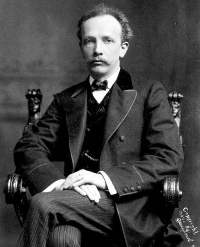
Richard Georg Strauss (German pronunciation: ; 11 June 1864 – 8 September 1949) was a German composer, conductor, pianist, and violinist. Considered a leading composer of the late Romantic and early modern eras, he has been described as a successor of Richard Wagner and Franz Liszt. Along with Gustav Mahler, he represents the late flowering of German Romanticism after Wagner, in which pioneering subtleties of orchestration are combined with an advanced harmonic style.
Felix Mendelssohn

Jakob Ludwig Felix Mendelssohn Bartholdy, born, and generally known in English-speaking countries, as Felix Mendelssohn (February 3, 1809 – November 4, 1847) was a German composer, pianist, organist and conductor of the early Romantic period.
The grandson of the philosopher Moses Mendelssohn, he was born into a notable Jewish family, although he himself was brought up initially without religion, and later as a Lutheran. He was recognized early as a musical prodigy, but his parents were cautious and did not seek to capitalise on his abilities. Indeed his father was disinclined to allow Felix to follow a musical career until it became clear that he intended to seriously dedicate himself to it.
Early success in Germany was followed by travel throughout Europe; Mendelssohn was particularly well received in England as a composer, conductor and soloist, and his ten visits there, during which many of his major works were premiered, form an important part of his adult career. His essentially conservative musical tastes however set him apart from many of his more adventurous musical contemporaries such as Liszt, Wagner and Berlioz. The Conservatory he founded at Leipzig became a bastion of this anti-radical outlook.
Mendelssohn's work includes symphonies, concerti, oratorios, piano and chamber music. He also had an important role in the revival of interest in the music of Johann Sebastian Bach. After a long period of relative denigration due to changing musical tastes and antisemitism in the late 19th and early 20th centuries, his creative originality is now being recognized and re-evaluated. He is now among the most popular composers of the Romantic era.
The grandson of the philosopher Moses Mendelssohn, he was born into a notable Jewish family, although he himself was brought up initially without religion, and later as a Lutheran. He was recognized early as a musical prodigy, but his parents were cautious and did not seek to capitalise on his abilities. Indeed his father was disinclined to allow Felix to follow a musical career until it became clear that he intended to seriously dedicate himself to it.
Early success in Germany was followed by travel throughout Europe; Mendelssohn was particularly well received in England as a composer, conductor and soloist, and his ten visits there, during which many of his major works were premiered, form an important part of his adult career. His essentially conservative musical tastes however set him apart from many of his more adventurous musical contemporaries such as Liszt, Wagner and Berlioz. The Conservatory he founded at Leipzig became a bastion of this anti-radical outlook.
Mendelssohn's work includes symphonies, concerti, oratorios, piano and chamber music. He also had an important role in the revival of interest in the music of Johann Sebastian Bach. After a long period of relative denigration due to changing musical tastes and antisemitism in the late 19th and early 20th centuries, his creative originality is now being recognized and re-evaluated. He is now among the most popular composers of the Romantic era.
Saint Saens

Charles-Camille Saint-Saëns (9 October 1835 – 16 December 1921) was a French composer, organist, conductor, and pianist, known especially for The Carnival of the Animals, Danse Macabre, Samson and Delilah, Havanaise, Introduction and Rondo capriccioso, and his Symphony No. 3 (Organ Symphony).
Tiberiu Olah
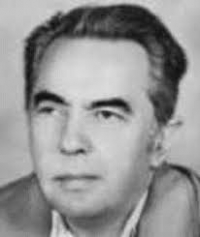
Tiberiu Olah or Tibor Oláh (2 January 1928 – 2 October 2002) was a Romanian-Hungarian composer, teacher and musicologist.Tiberiu Olah was born in Arpad, Bihor, and began his studies at the Cluj Conservatory in 1946. From 1949-54 he studied at the Moscow Conservatory, and in 1958 he took a position as a lecturer and later as a professor at the Bucharest Conservatory. Notable students include Doina Rotaru, Horațiu Rădulescu and Christian Wilhelm Berger.
Olah was a member of the Csodamalom Bábszínház Puppet Theater where he acted as a puppeteer. He received grants for research in musicology and presented studies and papers internationally. He also published reviews and articles in journals including Studii de Muzicologie, Muzica, România Literară and Melos. He died in Târgu Mureș.
Olah was a member of the Csodamalom Bábszínház Puppet Theater where he acted as a puppeteer. He received grants for research in musicology and presented studies and papers internationally. He also published reviews and articles in journals including Studii de Muzicologie, Muzica, România Literară and Melos. He died in Târgu Mureș.
Henry Clay Work
Henry Clay Work (October 1, 1832 – June 8, 1884) was an American composer and songwriter known for the songs Kingdom Coming, Marching Through Georgia, Wreck of the Old 97 and My Grandfather's Clock.Work produced much of his best material during the Civil War. He captured the deeply-felt emotions of that conflict and was more popular even than Stephen Foster. Work shares much of the credit for the development of the carefully refined Verse-Chorus structure of late 19th century popular song.
Fred Hamm
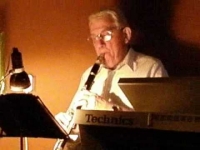
Fred Hamm was a Chicago jazz orchestra leader and co-author of the song "Bye Bye Blues." In 1925 he took over the leadership of the Benson Orchestra (founded by Edgar Benson). He sang and played the cornet. Among the members of his band were Dave Bennett (who played clarinet and alto saxophone), Chauncey Gray (piano), and Bert Lown (violin). With Bennett, Gray, and Lown, he co-wrote "Bye Bye Blues" in early 1925.
Ludwig van Beethoven

Ludwig van Beethoven (/ˈlʊdvɪɡ væn ˈbeɪt(h)oʊvən/ (About this soundlisten); German: (About this soundlisten); baptised 17 December 1770 – 26 March 1827) was a German composer and pianist. A crucial figure in the transition between the classical and romantic eras in classical music, he remains one of the most recognized and influential musicians of this period, and is considered to be one of the greatest composers of all time.
Beethoven was born in Bonn, the capital of the Electorate of Cologne, and part of the Holy Roman Empire. He displayed his musical talents at an early age and was vigorously taught by his father Johann van Beethoven, and was later taught by composer and conductor Christian Gottlob Neefe. At age 21, he moved to Vienna and studied composition with Joseph Haydn. Beethoven then gained a reputation as a virtuoso pianist, and was soon courted by Prince Lichnowsky for compositions, which resulted in Opus 1 in 1795.
Beethoven was born in Bonn, the capital of the Electorate of Cologne, and part of the Holy Roman Empire. He displayed his musical talents at an early age and was vigorously taught by his father Johann van Beethoven, and was later taught by composer and conductor Christian Gottlob Neefe. At age 21, he moved to Vienna and studied composition with Joseph Haydn. Beethoven then gained a reputation as a virtuoso pianist, and was soon courted by Prince Lichnowsky for compositions, which resulted in Opus 1 in 1795.
Ruperto Chapí
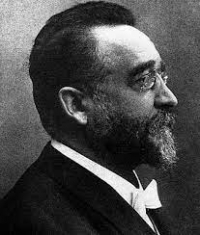
Ruperto Chapí y Lorente (27 March 1851 – 25 March 1909) was a Spanish composer, and co-founder of the Spanish Society of Authors and Publishers.Chapí was born at Villena, the son of a Valencian barber. He trained in his home town and in Madrid. He wrote many symphonic, band, choral and chamber works, as well as zarzuelas and operas, becoming, alongside Tomás Bretón, a fellow pupil of Emilio Arrieta at the Madrid Conservatory. He was one of the most popular and important composers of his time. He wrote zarzuelas in all shapes and sizes, including the three-act zarzuela grande and the one-act género chico forms. His most celebrated work is La revoltosa, written in the latter style. Many of the preludes to his zarzuelas (including those to El tambor de granaderos and La patria chica) have remained staple items in Spanish orchestral concerts.
Guy Dangain
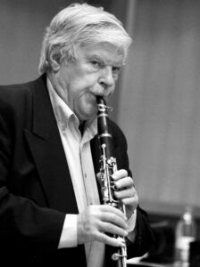
Guy Dangain (born 12 July 1935) is a French classical clarinetist.Born in Sains-en-Gohelle (Pas-de-Calais), Dangain, originally from the Pas-de-Calais mining area, began his musical studies in the orchestra of the mining town of Sains-en-Gohelle. From 1951 to 1952, he studied at the Conservatoire de Lille with Edmond Hannart. He then studied with Ulysse Delécluse at the Conservatoire de Paris, where he obtained a first prize in 1953.As clarinet soloist with the Orchestre national de France 1963 to 1993, he performed under the direction of Lorin Maazel, Neville Marriner, Wolfgang Sawallisch, Leonard Bernstein, Jean Martinon, Karl Munchinger, Emmanuel Krivine, Marc Soustrot, Karel Husa and Manuel Rosenthal.
Fabian Andrades
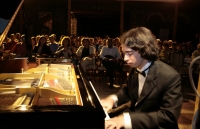
Fabian Andrades Contemporary composer born in Iquique, Chile.
Michiru Oshima
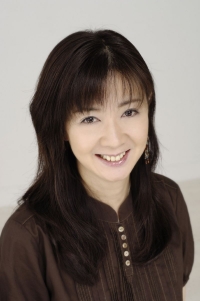
Michiru Ōshima (大島ミチル Ōshima Michiru?, born March 16, 1961 in Nagasaki, Nagasaki), is a Japanese composer who has worked on several video game, movie, and television titles. Her works include composition for the video games Genghis Khan II: Clan of the Gray Wolf for Super Nintendo, Ico for PlayStation 2, Legend of Legaia for the PlayStation (and its PlayStation 2 sequel, Legaia Duel Saga, for which she collaborated with eminent Japanese game composers Yasunori Mitsuda and Hitoshi Sakimoto), Arc the Lad III, and an orchestral arrangement of a Zelda medley for the Wii and Nintendo GameCube game The Legend of Zelda: Twilight Princess. In addition to video game music, she has composed music for Godzilla vs. Megaguirus and Godzilla Against Mechagodzilla movies and scores for numerous anime television series, including Fullmetal Alchemist (and the motion picure Fullmetal Alchemist the Movie: Conqueror of Shamballa), Nabari no Ou, Queen Emeraldas, Xam'd: Lost Memories, Arc the Lad, and Weathering Continent. She was also the composer for a Japanese stage musical adaptation of the classic Hollywood film Roman Holiday.
roy turk
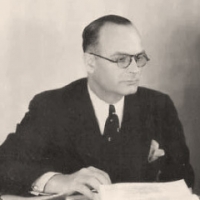
Roy Kenneth Turk was an American songwriter and lyricist, he frequently collaborated with composer Fred E. Ahlert – their popular 1929 song "Mean to Me" has become a jazz standard. He worked with many other composers, including for film lyrics. Turk was elected to the Songwriters Hall of Fame in 1970.
Yoko shimomura

Yoko Shimomura (下村 陽子 Shimomura Yōko?, born October 19, 1967) is a Japanese video game composer. She has been described as "the most famous female video game music composer in the world". She has worked in the video game music industry since graduating from Osaka College of Music in 1988. From then until 1993, she worked for Capcom, where she composed wholly or in part the scores for 17 games, including Final Fight and Street Fighter II.
Zheng Lu

Zheng Lu (郑路) (born 1978 in Inner Mongolia, China) is an artist based in Beijing. Zheng Lu studied at Lu Xun Fine art Academy from 1998 to 2003 before continuing to Beijing's prestigious Central Academy of Fine Arts from 2004 until 2007.
Philippe Paquot
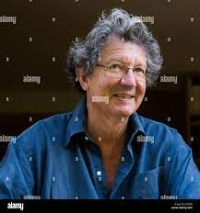
Philippe Paquet. Montreal, Québec. Philippe Paquet is a Canadian composer based in the Montreal region. He studied jazz guitar and classical composition at ...
Bach

Johann Sebastian Bach (31 March 1685 – 28 July 1750) was a German composer and organist whose sacred and secular works for choir, orchestra, and solo instruments drew together the strands of the Baroque period and brought it to its ultimate maturity. Although he introduced no new forms, he enriched the prevailing German style with a robust contrapuntal technique, an unrivalled control of harmonic and motivic organisation in composition for diverse musical forces, and the adaptation of rhythms and textures from abroad, particularly Italy and France.
Revered for their intellectual depth and technical and artistic beauty, Bach's works include the Brandenburg concertos; the Goldberg Variations; the English Suites, French Suites, Partitas, and Well-Tempered Clavier; the Mass in B Minor; the St. Matthew Passion; the St. John Passion; The Musical Offering; The Art of Fugue; the Sonatas and Partitas for violin solo; the Cello Suites; more than 200 surviving cantatas; and a similar number of organ works, including the celebrated Toccata and Fugue in D Minor.
While Bach's fame as an organist was great during his lifetime, he was not particularly well-known as a composer. His adherence to Baroque forms and contrapuntal style was considered "old-fashioned" by his contemporaries, especially late in his career when the musical fashion tended towards Rococo and later Classical styles. A revival of interest and performances of his music began early in the 19th century, and he is now widely considered to be one of the greatest composers in the Western tradition.
Revered for their intellectual depth and technical and artistic beauty, Bach's works include the Brandenburg concertos; the Goldberg Variations; the English Suites, French Suites, Partitas, and Well-Tempered Clavier; the Mass in B Minor; the St. Matthew Passion; the St. John Passion; The Musical Offering; The Art of Fugue; the Sonatas and Partitas for violin solo; the Cello Suites; more than 200 surviving cantatas; and a similar number of organ works, including the celebrated Toccata and Fugue in D Minor.
While Bach's fame as an organist was great during his lifetime, he was not particularly well-known as a composer. His adherence to Baroque forms and contrapuntal style was considered "old-fashioned" by his contemporaries, especially late in his career when the musical fashion tended towards Rococo and later Classical styles. A revival of interest and performances of his music began early in the 19th century, and he is now widely considered to be one of the greatest composers in the Western tradition.
Ritz Ortolani
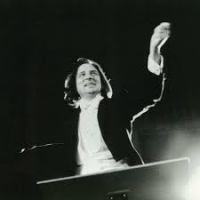
Riziero Ortolani (Italian pronunciation: ; 25 March 1926 – 23 January 2014) was an Italian composer, conductor, and orchestrator, predominantly of film scores. He scored over 200 films and television programs between 1955 and 2014, with a career spanning over fifty years.
Koji Kondo

Koji Kondo (近藤浩治 Kondō Kōji?, born August 13, 1960) is a Japanese video game composer and sound director who has been employed at Nintendo since 1984. He is best known for scoring numerous titles in the Mario and The Legend of Zelda series.
Sigfrid Karg-Elert
Sigfrid Karg-Elert (November 21, 1877 – April 9, 1933) was a German composer in the early twentieth century, best known for his compositions for organ and harmonium.Karg-Elert was born Siegfried Theodor Karg in Oberndorf am Neckar, Germany, the youngest of the twelve children of Johann Jacob Karg, a book dealer, and his wife Marie Auguste Karg, born Ehlert (sic). According to another account, however, his father was a newspaper editor and publisher (Conley 2001). The family finally settled in Leipzig in 1882, where Siegfried received his first musical training and private piano instruction.
Thomas Seinen
Thomas Seinen musician, classical composer and arranger, known for writing new interpretations of many old classical pieces.
Béla Kovács
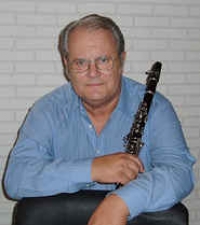
Béla Kovács (born May 1, 1937 in Tatabánya, Hungary) is a Hungarian clarinetist.He graduated from the Franz Liszt Academy of Music in Budapest, Hungary.He was principal clarinetist with the Hungarian State Opera Orchestra and the Budapest Philharmonic Orchestra since 1956, until he retired in 1981.Kovács has been a Professor of Clarinet at the Franz Liszt Academy of Music in Budapest and at the University of Music and Dramatic Arts in Graz, Austria. He has also composed a set of concert etudes for clarinet called "Hommages" that are written in the style of a number of different composers and are studied and/or performed widely today.
Dan Burgess
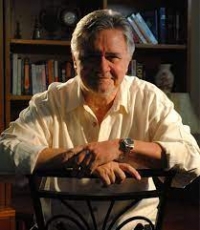
Dan Burgess Music Song Results · Ancient Of Days · Holy Holy Lamb · I Will Not Fear · I Will Praise Him · Ich bin bei dir · In His Holy Place · Joyful Joyful We Adore Thee (Hymn To Joy
Witold Lutosławski
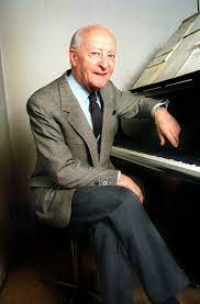
Witold Roman Lutosławski (Polish: (About this soundlisten); 25 January 1913 – 7 February 1994) was a Polish composer and conductor. Among the major composers of the 20th century, he is "generally regarded as the most significant Polish composer since Szymanowski, and possibly the greatest Polish composer since Chopin". His compositions—of which he was a notable conductor—include representatives of most traditional genres, aside from opera: symphonies, various orchestral works, chamber works, concertos, and song cycles, some of which he orchestrated. Of these, his best known works are his four symphonies, the Concerto for Orchestra (1954), the song cycle Twenty Polish Christmas Carols (1946), and a cello concerto (1970).
Steve Pogson
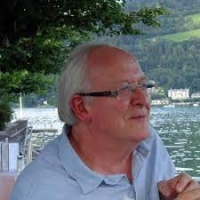
He is a music teacher and composer with a particular interest in musical applications of IT. I teach piano, guitar, sax and clarinet.
Ralph R. Carmichael
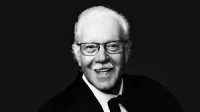
Ralph Carmichael was an American composer and arranger of both secular pop music and contemporary Christian music. He is regarded as one of the pioneers of contemporary Christian music.
Paul Anka

Paul Albert Anka, OC (born July 30, 1941) is a Canadian/American singer, songwriter, and actor.
Anka first became famous as a teen idol in the late 1950s and 1960s with hit songs like "Diana'", "Lonely Boy", and "Put Your Head on My Shoulder". He went on to write such well-known music as the theme for The Tonight Show Starring Johnny Carson and one of Tom Jones's biggest hits, "She's a Lady", and the English lyrics for Frank Sinatra's signature song, "My Way".
In 1983, he co-wrote with Michael Jackson the song "I Never Heard", which was retitled and released in 2009 under the name "This Is It". An additional song that Jackson co-wrote with Anka from this 1983 session, "Love Never Felt So Good", has since been discovered, and will be released in the near future. The song was also released by Johnny Mathis in 1984.
Anka first became famous as a teen idol in the late 1950s and 1960s with hit songs like "Diana'", "Lonely Boy", and "Put Your Head on My Shoulder". He went on to write such well-known music as the theme for The Tonight Show Starring Johnny Carson and one of Tom Jones's biggest hits, "She's a Lady", and the English lyrics for Frank Sinatra's signature song, "My Way".
In 1983, he co-wrote with Michael Jackson the song "I Never Heard", which was retitled and released in 2009 under the name "This Is It". An additional song that Jackson co-wrote with Anka from this 1983 session, "Love Never Felt So Good", has since been discovered, and will be released in the near future. The song was also released by Johnny Mathis in 1984.
Sean Mortensen
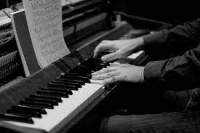
I'm an aspiring composer, well-to-do pianist and percussionist. I'm even bilingual in Spanish, Italian and Portuguese (I'm almost a Jack of All Trades).
 Sheet Music Network is a site for those who wants to access popular sheet music easily,
letting them download the sheet music for free for trial purposes.
It's completely free to download and try the listed sheet music, but you have to delete the files after 24 hours of trial.
Don't forget, if you like the piece of music you have just learned playing,
treat the artist with respect, and go buy the original sheet music.
Sheet Music Network is a site for those who wants to access popular sheet music easily,
letting them download the sheet music for free for trial purposes.
It's completely free to download and try the listed sheet music, but you have to delete the files after 24 hours of trial.
Don't forget, if you like the piece of music you have just learned playing,
treat the artist with respect, and go buy the original sheet music.
